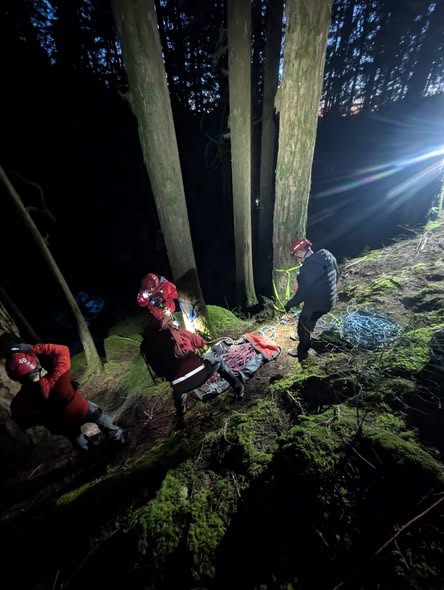Coquitlam– This year, patients at the Colony Farms Forensic Psychiatric Hospital (FPH) have completed over 630 paid and voluntary opportunities, totalling 3,708 hours of paid work and 743 hours of volunteering that benefit the local community.
The vocational program is led by the rehabilitation team at FPH, which is operated by BC Mental Health and Substance Use Services (BCMHSUS).
“When people are struggling because of mental health and addiction challenges, we want supports to meet them on their pathway to recovery and wellbeing,” said Jennifer Whiteside, Minister of Mental Health and Addictions. “Vocational programs, like the one at the Forensic Psychiatric Hospital, are important for breaking down stigma and helping people have a safe and successful reintegration back into society.”
The vocational program focuses on helping patients build the skills and responsibilities needed to secure and maintain employment when they leave the hospital, and connects them with potential employers.
“For many of us, our jobs form a big part of our identity,” said Ayesha Sackey, director of allied health at FPH. “Many of our patients face the dual stigma of mental illness and contact with the law, and without support, it can be difficult for patients to believe they can find work again. The vocational program helps them to feel ready to join the workforce, something that is a huge part of community reintegration.”
Colony Farms houses a number of patients who range from low risk to high risk such as child murderer Allen Schoenborn, who was convicted of killing his 10-year-old daughter and two sons, aged eight and five, in Merritt back in April 2008. Obviously, considered high risk.
Of these opportunities, over 780 hours of employment were in construction and contracting work, over 1000 hours of work in the food services and hospitality industries, and many more with not-for-profit organizations and businesses. Patients have also received over 40 certifications through the Acquiring Community-Based Employment Skills program (ACES) in areas such as fall protection, forklift operation, occupational first aid and construction safety.
“What’s great is the vocational program has something for everyone: horticulture, wood shop, even food services,” said Dan, a patient at FPH. “It’s all incentive based, which helps to build responsibility. The more we show up, the higher privilege we graduate to and the better jobs we can get. I started as a unit cleaner at the hospital. Then I got to go do some more labour-intensive construction work. Now I work eight-hour days with a hardscaping company getting $25 an hour. Eventually I want to start my own company.”
Patients come to FPH when they have been found not criminally responsible by the courts, are unfit to stand trial due to a mental disorder, or have been transferred temporarily from correctional centres to be assessed or treated under B.C.’s Mental Health Act. Many patients come from backgrounds where they have not had the opportunity to get formal skills training or long-term employment, while others have left their careers as they focus on treatment. The vocational program enables patients to use their time at the hospital to discover new interests and hone valuable skills through job readiness training for future employment.
Recognizing that patients are at different stages of treatment and recovery, the vocational program provides gradual levels of responsibility through an incentive-based scheme. Patients first complete an assessment to identify their level of ability, skills, experience and what they like, before beginning job readiness training. Upon achieving a level of program attendance and accomplishment in an in-hospital job, they receive further training in their area of interest and opportunities to work in the community.
The vocational program at FPH shows that with treatment and rehabilitative interventions, people living with schizophrenia and other mental health disorders can recover and transition safely back to their communities, demystifying the stigma that people living with mental ill health are not able to lead a meaningful and contributing life.
FYI:
· The Forensic Psychiatric Hospital is a 190-bed secure facility in Coquitlam.
· The hospital is mandated by from the BC Review Board, an independent tribunal under the Criminal Code of Canada, to work toward community integration when possible.
· Up to two-thirds of patients at the hospital live with a combination of severe mental illness and addiction to substances — sometimes more than one substance.
· Visit BCMHSUS.ca for more information on the Forensic Psychiatric Hospital.








